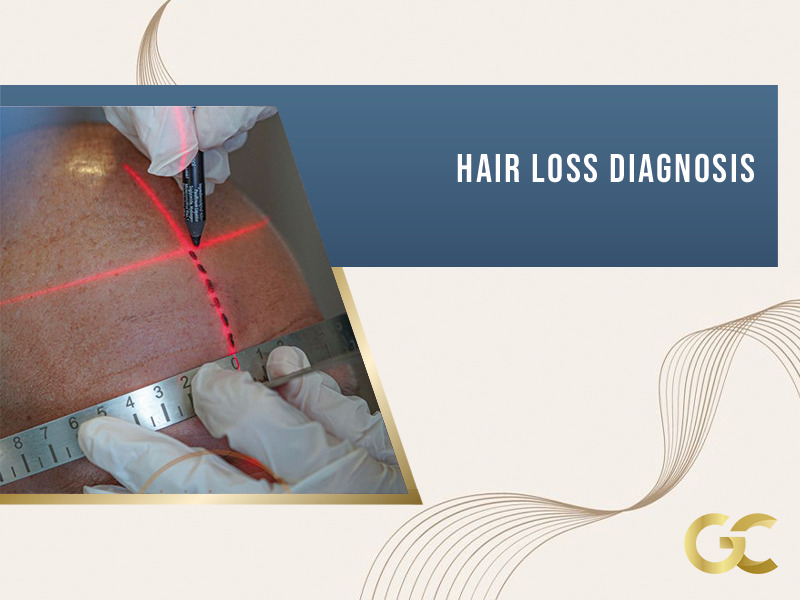A hair loss diagnosis allows you to know precisely the causes of your hair loss.
The diagnosis is specifically conducted to determine the following:
- Any underlying health condition or illness that might be causing hair loss
- Test the firmness of the hair (how easy it is to pull off the scalp)
- Infections on the scalp
- Test the hair for follicular anomalies.
If all tests turn out negative, congratulations, your scalp is fine. If they are not, our doctors will give you instructions to treat the conditions.
Process for Hair Loss Diagnosis
The first step is for our doctor to take a look at your medical history. During this review, they might also ask you a wide range of questions. These can be questions about your lifestyle and habits in addition to questions about your hair.
Many things will be considered, such as the following:
- Your nutrition—which foods you consume and in what frequency, along with any diet plan you might be following
- Hairstyling habits—which hairstyles, products, hair-care regime, and frequency of usage
- History of any consumption of anabolic steroids or recreational use of drugs
- Whether there is hair loss among other members of your family
- History of diseases you might have experienced in the past
- Recent pregnancies (in the case of women)
- Psychological conditions that might have afflicted you in the past
- Lifestyle habits—such as how much physical exercise you perform on a weekly basis, how much sunlight you are exposed to, and levels of daily stress
These may seem completely unrelated to your hair. However, these actually may actually lead to hair loss.
Results of Hair Loss Diagnosis
The test will determine which of the following hair loss types afflicts you and whether it is reversible.
- Telogen effluvium. A disruption in the hair’s natural shedding and renovation process. Illness, childbirth, or surgery can actually trigger it. Once the stressors and illness are out of the way, it is completely reversible.
- Anagen effluvium. Rapid shedding of hair that is caused by drugs like those used for chemotherapy treatment of cancer. It is rapidly reversible once you do away with the substance that caused it.
- Alopecia areata: An autoimmune disorder in which the body attacks its own cells; this includes hair follicles. Several conditions cause it, including psychological stress. Finding out and treating these said conditions reverses the hair loss.
- Androgenetic alopecia. More widely known by the names “male pattern baldness” or “female pattern baldness,” depending on the gender of the patient. It is not reversible.
When dealing specifically with androgenetic alopecia, know that its causes are genetic. You can inherit it from either one or both of your parents.
Some genes will make you more sensitive to the hormone dihydrotestosterone (DHT). This hormone binds with the hair follicles on the scalp. Also, it makes them progressively shrink until they grow no longer. Hence, this is why it is not reversible.
In case the hair loss diagnosis determines androgenetic alopecia, only a hair transplant procedure will put hair back on your scalp. Our surgeons are highly qualified in performing hair transplant procedures, and our prices are affordable. Contact us if you want to restore your hair’s looks.

